Subscribe To Podcast | More Episodes
Listen To Podcast Episode #61
Podcast Episode 61: Nick’s Quest to Get a Grip. Is this the human race’s most unlikely contender at a world championship strength event? Nick tells Heather how he happened into the sport of Armlifting and ended up representing the USA on the global stage.
Publish Date: Friday, March 15, 2019
Behind The Scenes Photo:
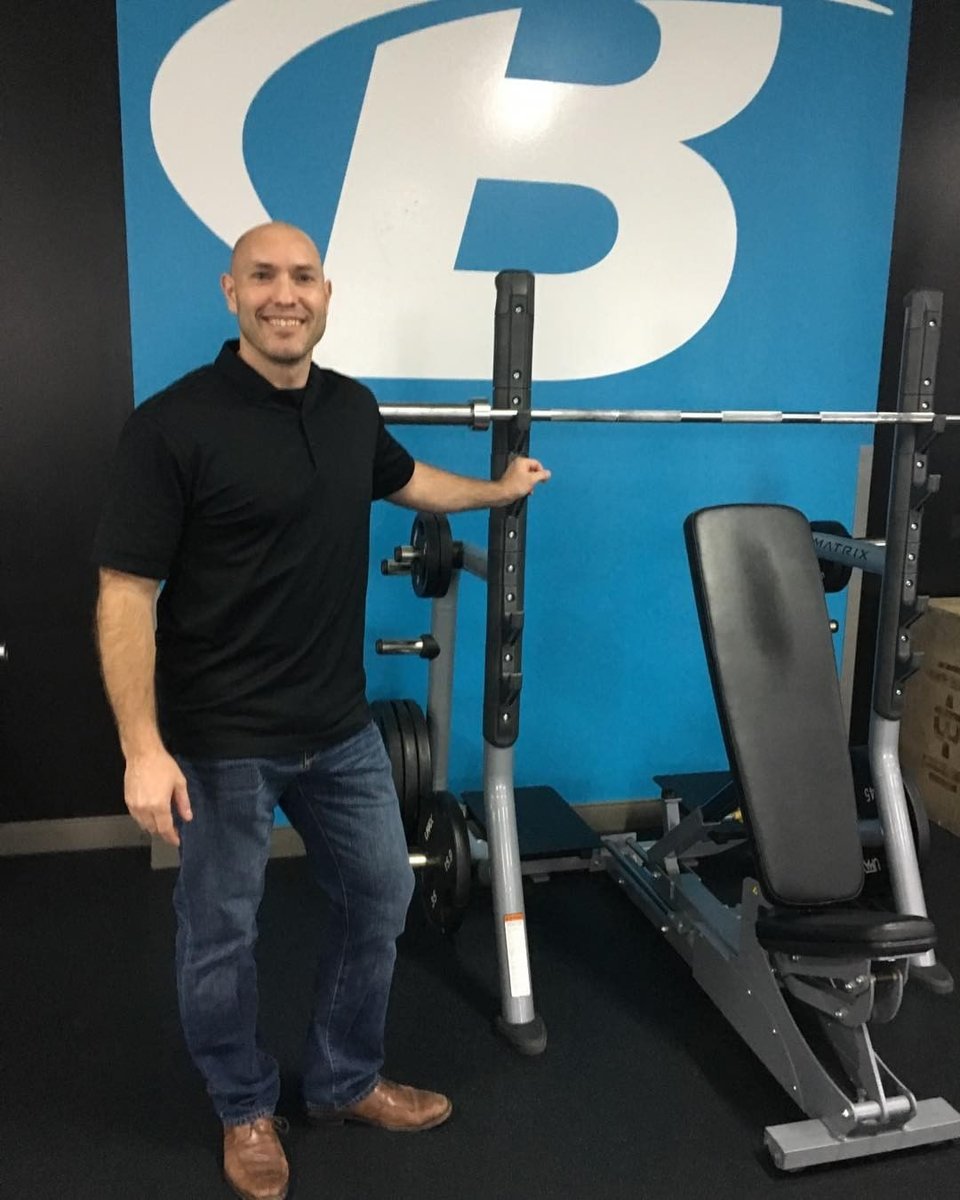
Music Video:
Ep. isode 61 Transcript ▼
Heather Eastman: Welcome everyone to The Gym2k.com Podcast. I’m your host, Heather Eastman, and today we’re mixing things up a little bit. I’m actually interviewing my co-host Nick Collias. He is our…
Nick Collias: That’s right.
Heather: …executive editor here at Gym2k.com. I’d say thanks for joining us, but you’re kind of here every day, anyway.
Nick: Yeah, and I’m usually doing the interviewing on that podcast, so I’m that guy that maybe people on YouTube know as the one in the comments, they say, “LOL, I can’t believe they let the little, tiny guy host the podcast.”
Heather: So, today this is the Heather podcast because Heather is interviewing Nick, it really should be the Nick podcast, but we are interviewing Nick because he is doing something kind of extraordinary.
Nick: I’m a pro athlete…
Heather: I mean, so, to prepare for this, I should let all of our viewers and listeners know, I actually googled “Nick Collias athletic career” and we had one article.
Nick: Did one of those little shit emojis come up? ? Steaming.
Heather: So, we had one article that popped up from whence I drew most of the information that you’re gonna go through today, but basically, Nick is going to the World Armlifting Championships in Russia.
Nick: World Armlifting… armlifting.
Heather: Armlifting.
Nick: Yeah. It’s not arm wrestling, it’s called “armlifting” because it’s a lifting competition that used to take place at arm wrestling competitions. This guy was like, “Hey, let’s do grip-strength competitions at arm wrestling competitions.”
Heather: Now, did he say it like that, or…
Nick: And because he’s Russian…
Heather: Okay.
Nick: …he called it “armlifting.” We’ll call it armlifting. Right? It doesn’t sound like the sort of thing that an English speaker would come with necessarily because you’re not lifting your arm in this sport.
Heather: No. Armlifting makes it sound like you’re just flapping your wings. No, but for those who are a little confused, let me explain, and fortunately, you have a coworker who is blissfully unaware of what you do in your personal time.
Nick: Those are the best kind.
Heather: So, Nick came into the office one day saying that he was now the North American grip strength 2nd place champion from his weight class.
Nick: Mm-hmm (affirmative), for my weight class, which is the little weeny guy, under 180 pounds.
Heather: Yeah, and so, sitting in front of us today are a little plethora of various grip training apparati. And knowing Nick, and knowing what he does around the office and kind of knowing that this is one of his little things, we naturally said, “Okay, well, what does that mean?” And it said it means he’s going to the world championships.
Nick: I’m going to the world championships in a sport.
Heather: So naturally I had to go home and watch Rocky 4 and understand exactly exactly…
Nick: Oh yeah, we’re gonna have many training montages resulting. And let me put this in context a bit, there are world championships, you invent a sport, you can invent a world championship. This is a fairly popular Russian sport that I had no idea I had any aptitude in, and I did a competition locally just as a favor to somebody and it turns out that there were only like 12 dudes in North America in my weight class, and so I kinda fell backwards into it. It felt like I did okay, I’m no great talent in this, but it’s one of those things where the opportunity arose like, you can go to the world championships of something as a competitor. Why would you not do it?
Heather: So… Right. And part of this is just kind of bringing awareness to the sport more than anything else.
Nick: Absolutely. Yeah, it’s an oddball sport, it’s all grip-strength focused, and the idea is that it’s less complicated than powerlifting, those are huge, heavy movements, very specific rules, this is kind of a more old-school, strongman kind of sport where it’s like, “Hey, there’s a thing on the ground, can you get it up?” And that’s it, that’s it. There’s just point A and point B, everything between is just whatever you do. It’s kinda fun.
Heather: Right, well I wanted to ask you about that, because you’re known around the office as the guy that’s kind of in charge of Strengthfort, which is the strength portion of our local musical festival.
Nick: It was, yeah.
Heather: Or was. And with that, and I didn’t know they were spelled this way, the Dinnie Stone.
Nick: Mm-hmm (affirmative).
Heather: And that’s basically a large stone that has a ring drilled into it and you just try to challenge people to, you know, Sword in the Stone-style, kinda just lift it up with brute strength.
Nick: Yeah, so the Dinnie Stones are these two rocks in Scotland that have rings built into the top of them and there’s this great challenge, can you lift one or both of them? Both of them being one in each hand, they’re like 400 and 300 pounds. And my friend and I, for a little strongman fair at a local music festival, we just made some Dinnie Stones. One of them are in my garage right now. It was probably like 330 pounds, it’s got this tiny little ring. It’s a grip challenge but it’s also just very limited range of motion, full-body lift that I just completely fell in love with and I would lift this rock whenever I could. It takes everything you have but the rock only moves like three inches and I remember thinking like, “Wow, the whole world is so obsessed with range of motion.” “Oh, does your squat go to parallel or ass to grass?” “Did the bench press touch your chest?”
All these different things, but in the old days there were competitions for every range of motion. Yeah, there could be like, lifting something from the ground overhead, a full-on clean and press, but there were also just, “Who can lift the most in this very specific thing?” Hermann Görner, one of the great old-time strongmen from the early part of the 20th century, he used to do one-arm deadlifts. The one-arm deadlift is not something anybody cares about but he once lifted 330 pounds in a one-arm deadlift. And these sorts of things just sort of live on in the past, right? Like, who cares how much you can one-arm deadlift? But there are a group of people out there who are looking at it like, “Yeah, that’s be fun, let’s do that.” Why do we have to limit ourselves to just… posing in posing suits on stage, or doing very, very specific lifts?
I’ll be totally honest, I’m a shitty deadlifter, shitty squatter. I strength train about as regularly as anybody in this building, I probably have lifted 4-5 times a week for the last five, six years. But, I’m just a little guy, I’m not particularly strong, and yeah, just all of a sudden I found that it paid off when I did this one specific event. Being mediocre at everything I had ever done athletically just kind of paid off enough to, you know, they say the rising tide brings up all ships, basically. So being a shitty rock climber, being a mediocre runner, being a mediocre lifter, they just sort of coalesced and now I’m professionally mediocre.
Heather: You’re taking us through your athletic highlights.
Nick: That’s right.
Heather: I’d like to know, at what point did you discover that you had this, kind of, special gift?
Nick: “Special gift”? Well, growing up, my mother did call me “The special boy”, that was my nickname. I’m pretty sure that I’m not special, it’s been a process of gradual discovery over the course of my life that despite what my mother said, I’m actually not special.
Heather: Yes, yes. We were all lied to by our mothers.
Nick: Some of my great athletic highlights, in 8th grade, I played on the B team in basketball, I went the entire season without scoring a basket, even though there was like, enforced playing time, I was out there. It’s harder to not score by accident, but I didn’t score the entire year. I played five years of soccer, never scored a single goal. I was an alright outfielder in baseball, but when it got to 8th grade, I was too scared to go play and so I decided not to and I remember my dad saying, “Hey, I heard they’re drafting women onto the boys baseball team, girls onto the team because they don’t have enough people”, and I was still too chicken to do it.
Heather: Aww.
Nick: So, this is sort of my background, it’s just like, I would always just do stuff until there was any sort of challenge and then it’d be like, “I don’t particularly wanna do that.” So, I had this moment when I did this competition, I did two competitions last year actually and I realized, “Oh, wow, I’m number two in North America, I have officially qualified for Team USA in the sport of armlifting”, and I remember thinking like, “Nobody’s gonna really believe that I’ve qualified for a strength sport. My family’s gonna get a great laugh out of it.” Everybody I know who has known me my whole life will go, “Really? Really? You’ve qualified for a world-class competition?” And for all those reasons, I felt like, “Why the hell not? Why would I not do something like that?” So for the last six weeks, maybe eight weeks, I’ve been training fairly pointedly on these implements.
Armlifting is built around three lifts, kind of like the powerlifts, right? So, powerlifts: squat, bench, deadlift. In armlifting, the three events are a double-overhand axle bar deadlift, meaning no hook, no alternating grip because you can lift more that way, it’s pure double overhand, then the second one would be this thing I’m holding in my hand, which you can’t see if you’re listening to audio only, it’s called a rolling thunder, it’s a 2-3/4 inch rotating, single-arm deadlift handle. It’s a really good approximation of what it’s like to ring out a sweaty singlet after a powerlifting meet.
Heather: One thing I wanna point out to anyone who’s not watching this…
Nick: Which is everyone.
Heather: Which is pretty much everyone, is when I think of grip I always think of, “Oh, gripping the bar, that’s easy”, but we’re looking at things where you don’t actually get to wrap your hand around it, it’s more fingers. Can you kind of elaborate a bit on what is the grip strength? Like, what are they looking at? Is it mostly hand? What muscles are you really working?
Nick: Sure, yeah. It’s different because I’ve seen some grip competitors’ hands and they’re big and they’re beefy, but your hands can only get so big, right? You’re limited by your bones, obviously, but there’s just not that much muscle in a hand. There’s a bit of muscle, I’ve seen pictures of some pretty swole thumbs but for the most part, it’s forearm strength, it’s also ligament and tendon strength, right? Which are very slow things to build and the first time somebody goes rock climbing or bouldering, they feel completely burned out, like you feel like you can’t even pick up your toothbrush. I felt that same way when I used to go rock climbing, and I discovered that just a bit of direct grip training can pay off immensely, so I would do it like, once or twice a week just to be a slightly less-shitty boulderer and that fatigue just started delaying a little more.
And the way I would do it would be doing the same things people would do in gyms like, barbell wrist rolls and stuff like that, which is much more forearm-focused, less hand-focused, kinda wrist-focused, really lactic acid, burn-y, certain muscular work. This is much more like a powerlifting competition, so you get X attempts, you get three or four depending on the competition, you call out your weight, you lift it, you know? And so, on the three main lifts we talked about, the third one is like a spring-loaded gripper, that’s what people think of when they think of grip training, right? You’re holding some little springy thing in your hand. So that’s an event as well, you hold that for time.
Then there are other events at this particular competition including a pinch grip, so one of the things that I brought here is a pinch block, a three-inch pinch block, people who maybe have watched a bunch of Jujimufu videos over the last couple of years, he’s been getting into grip training and pinch training. Pinch training is a very different kind of grip training than some of these other ones, like when you’re holding a big barbell, you’re just crushing it in your hand as best you can.
Heather: Right.
Nick: Even if it’s an axle bar, same with this rolling thunder, you’ve just gotta grip it for dear life, there’s only so much technique that goes into it because you’re just crushing it.
Heather: Right, yeah. The pinch grip feels like it could be its own little subset because it’s, again, I’ll describe this, you have no actual grip around anything, you’re just pinching this large brick, between your fingers.
Nick: Oh, yeah. Right, it’s like you’re pretending to be a clam or a lobster.
Heather: And it’s a great way to just kinda mess with your buddies, because we had, I can’t remember where it was, but we had something in the office where you had to pinch grip to try to lift it up.
Nick: Yeah, the legendary Jim Stoppani, Sr., once upon a time, gave us a concrete ball that had a little pinch block on it, it was like 55 pounds with this little tiny thing. And he’s a great grip-training aficionado and yeah, nobody around the office could lift it, certain people could but it’s a mystery who has that grip strength and who doesn’t, and it’s really strange as I’ve gotten deeper into grip strength, I’ve discovered that you can’t predict what’s going to work and what doesn’t, necessarily.
Heather: Right.
Nick: You can do your best to think your way through deadlifting, benching, squatting, but with this, sometimes when it works, you have no idea why, you have no idea what worked. I trained for like, two weeks for my first competition, like, “Hey, we’re doing it in a couple weeks, you wanna go?” Anyway, we practiced with thick bar one time, we practiced with the grippers one time and then we went in and I hit these numbers and I was like, “I don’t know, were they good?” And the woman would say, “That was really good! That was really good!” I haven’t been able to meet those numbers since then. No training, total ignorance, and just all of the other mediocre training in my life paid off that one day, I haven’t been able to touch those numbers again since then, isn’t that fascinating?
Heather: Now that brings up a good question, how are you preparing for this competition coming up in Russia? But first of all, do you speak Russian?
Nick: I believe “no” is the same in Russian and English, so no.
Heather: Okay, so you’ll just be saying no to everything.
Nick: But I’m saying that in Russian when I say “no”. No, I don’t speak a word of Russian, I’ve tried to learn the Cyrillic alphabet a bit so that I don’t get lost in the streets because supposedly, you can’t trust that people are going to cater to your English speaking, that’s fine, I’ve traveled internationally, I know how that is. It’s a really tough language though, and it’s as frightening to me as the specific event which is gonna be me standing in this giant Soviet-era sports complex with a 50 to 75-foot screen behind me with me in a singlet, my name on the back, people looking at me going, “Who’s that guy? I don’t care, what is he gonna do?” And I either do it or I don’t, they cheer or they boo, maybe I’ll get boo’d, maybe I will totally get boo’d by people from all over the world, right? There are gonna be 15 countries, 150 competitors there. I struggle with feelings of inadequacy a little bit.
Heather: I was gonna say, this is kind of meeting that criteria that you discussed earlier of once it becomes a little too challenging, you know…
Nick: Oh, I’m there, I’m totally there. And my friend who’s going with me, we have these conversations about once a week where it’s like, “How are you feeling?” “You know, I’m feeling pretty inadequate.” “Yeah, you know, me, too.” These are the little male sharing moments, we’re putting our vulnerabilities out there but like, if you stop and think about it, the majority of the people in this sport, they’ve been doing it for a while, us, we’re relatively new to it. You can just sort of think yourself out of this really quickly. So, one thing that I have been doing is I’ve been trying to find some precedent for this sort of thing and I happened across this women from the Olympics last year, her name was Elizabeth Swaney, right?
She just wanted to go to the Olympics and she figured out the sport that was easiest to get into, she figured out the country that was easiest to get into, based on her heritage and she made it to the Olympics just basically by figuring out how to go and going. It was in skiing on the half-pipe and when her turn came up in Sochi or wherever it was, Pyongyang. Where was it? Not Pyongyang.
Heather: It was Sochi, no wait.
Nick: Pyongyang is North Korea, it was in South Korea.
Heather: Yeah, it was not in North Korea.
Nick: She just kinda skied down, didn’t do any tricks, they gave her the absolute bottom level thing and she said, “Hi, everybody” and she left. She’s kinda my hero right now because she’s like, “Hey, I’m going to the world championships, I have no business being there. What am I gonna do?” And she’s like, “Well, of course I’ll go. I’m not gonna kill myself over it like a real athlete would but I’m gonna go.” And so, I’m gonna try to figure out if there’s a way that we can bring her on the podcast, I wanna talk to her because nobody’s really interviewed her that way yet and I’m very curious about that mindset, right? Like, if any of us went out there and searched and searched, we could find something that we could pay our way into or just find an opportunity to probably find something that doesn’t have a lot of competition in and you become good at it, in a manner of speaking.
But when shit gets serious like, “Hey, we’re going to Russia, are you coming? There are gonna be thousands of people potentially in the audience, it’s gonna be you versus the mountain in strongmen. It’s gonna be you versus somebody who’s …”
Heather: Oh, yeah, let’s not forget that, that they’re actual…
Nick: What are you gonna do? Right?
Heather: Yeah, members and athletes and famous competitors and athletes that are going to be there.
Nick: No, no, there are, I mean, they’re famous in the world of grip strength, right? And grip strength has always been a weird little insular community. My coach in this is this guy nicknamed “The Lobster” because of his pinching power, his name is Adam Glass, he’s one of the great freaks in grip strength in the human race for the last 20 years or so, and people like that are there, they’re competitors and half of the events are weight classed, so I’m gonna be competing just against people my own size, I think three of them. The other three are all open class, so it’s gonna be me versus Odd Haugen, the Visegrip Viking, who is 275 pounds and can deadlift 700 pounds and can easily lift a thick bar of 400 pounds, like he’s a monster, he’s an absolute monster.
So, when I go there, that’s one of the decisions I have to make, is how much am I going to try to compete against people in open class? Which is an option. I’m guaranteed to come in last in every single one of them, but am I going to do that? Why would I not?
Heather: Why not? You’re already there, you have the invitation to go.
Nick: Right.
Heather: So, I mean, what I’m hearing you say it’s very possible that you and your friend could come in 149th and 150th, respectively.
Nick: It’s a distinct possibility, you know? My wife, she’s a much more accomplished person, athletically, than me. The main reason that I do things like lift weights five times a week or whatever, do yoga, go for a run, is to try to keep up with her because she’s a real person. I’m kind of a poser.
Heather: Yeah, she’s mastered the press handstand, I’m already jealous of her. So…
Nick: Right, exactly. I remember her telling me, “Why would you go if you’re not trying to win?” Like, she couldn’t quite grasp that, and I was like, “Meh, I don’t care.”
Heather: Whereas, I get it: You’re getting to go to Russia and compete in an athletic event in Russia, that alone, who cares what it is?
Nick: Yeah, or my sons, I have a three-year-old and a seven-year-old, and my 7-year-old, he doesn’t really want me to go and part of it I think is because he doesn’t want me to go over there and not win because he’s a kid, even a seven-year-old understands the idea of like, if you’re going to the World Championships of something, you’re going there trying to win, but I think he wants me to not go in order to protect me, which is very sweet, but me on the other hand, I’m like, of course, I don’t mind coming in last place.
I believe I’ve used this anecdote on the podcast a number of times, but I ran my first trail race, I’ve only run a few of them, I run them for fun when they’re in a pretty place, I ran this 10-mile trail race maybe five years ago, and like, eight people in the race, and I came in dead last, by, you know, 3-4 minutes. Like, everybody else was a serious runner, me, I was just like, “I’m gonna go out there and try to finish feeling good”, and as I crossed the finish line, I had this moment that was like, “Alright, everybody’s gonna ask me, ‘How did you do?'” And when I say, “I came in last”, they’re gonna say, “How does it feel?” And I thought about it, how does it feel to come in last place? And it feels liberating, it feels completely liberating.
And I had this conversation with somebody else recently where I was telling them like, one of my favorite bands, they made some of their best records when everybody thought they didn’t even exist anymore and my friend was like, “That sounds liberating, like, nobody cares about you anymore. Isn’t that great?” So, that’s kind of how I’m trying to approach this is like, not how do you perform when the world is watching, but how do you perform when it really doesn’t matter? It does not matter at all, nobody cares and you’re there. I have no idea what’s gonna happen and it’s not a question of how heavy I lift, it’s how I comport myself in that situation, how I actually go through the process. Am I going to be disappointed with myself if I go up there and I lift the exact same amount that I had lifted before? I don’t know, that’s part of the adventure.
Heather: Attitude is everything and we’ve talked about that many times on the podcast, where with bodybuilding, everyone goes in wanting to win and you know, it’s a sport where very few people win and half the time you’re stepping on a stage.
Nick: Yeah, I mean, the first time you did a competition, what was your feeling on winning?
Heather: I was just happy to be there. I was just happy to step on stage and finally be done with the prep and be there and showing off everything I learned, and I did horribly, there are terrible pictures somewhere on the internet of me.
Nick: Did you finish toward the bottom?
Heather: Well, in a group of six females, I got fourth, which is not even top three and so that’s in the bottom half of those six.
Nick: Bodybuilding can be particularly cruel in that regard because there could be 20 people in 16th place in the Olympia.
Heather: Oh, yeah, yeah.
Nick: They just sort of cut off a group of people like an infected limb, you know? Like, all of you, you’re bottom.
Heather: All of you, you’re done.
Nick: Now, alright, let’s look at the other people.
Heather: My last show where I got second in a very big show, I think there were 119 competitors in figure alone and I got second so that felt really cool because just to be at that level, I didn’t even care that I didn’t get first, just to have a trophy, but each time, just the act of getting there was so much more than whatever awards or accolades that you receive on the other end of that, whereas running is such a weird sport because I was, once a long time ago, a runner, and my best season was the season before anybody knew who I was, or knew I could run. I always tell people, once the papers got ahold of my name, I didn’t do as well because people were actually watching me.
Nick: I think that’s a pretty common story.
Heather: Yeah. And I think, in talking to athletes, too, most people had their greatest trajectory when they were still relatively unknown and as soon as people start paying attention it’s like you’ve got that pressure helping tamp you down a little bit.
Nick: Yeah, it’s tough though when you have that date out there floating, whether it’s a race, whether it’s a bodybuilding show, it’s just hanging out out there and once you commit to it, it’s there no matter how well you do at it, you know? How did you deal with that accountability?
Heather: Okay, now you’re flipping the… You’re actually interviewing me now.
Nick: Yeah, I wanna know. We’re interviewing each other.
Heather: Well, with races, for me, once the gun went off, then I just turned off the brain and let the muscles take over. With the competition and with bodybuilding competitions, I mean, even in between shows, you can’t eat, you can’t drink, you’re just completely miserable.
Nick: Right.
Heather: I’d say the worst moments of my life were the day of competitions because you’re just lying on a bed, staring at the ceiling, waiting to go on stage again because you can’t do anything, you’re covered in spray tan, it’s just so, so miserable. So, I think that’s what’s prevented me from competing again, is just knowing that if I put a date on the calendar and I commit to that date, the lead up to that is the worst part and then the day of is the worst part, and yeah.
Nick: The worst part or the best part? I thought you said that the journey there was the best part?
Heather: When you finally get to step on stage for the last time, so you’ve done the judging in the morning and you’re finally coming on stage for the last time to get your trophy or if you win your class, that’s why you can’t eat anything because if you win your class, you have to go onto the next level, so you really have to stay in peak condition all the way through the day. Knowing that you’re finally there, it’s kind of, the only thing I can equate it to with running is when you can finally, you’re within 100 yards if the finish line and you’re there, and every runner has that last little kick where it’s like, “Okay, I’ve just gotta get there. I can see it now.”
Nick: And then you get across and you’re like, “I’m still me. I feel kinda sad now.”
Heather: “I did it!” So, I think that’s true with any competition where the anticipation is really what makes it so terrifying, but actually doing it, you’re gonna get over there, you’re gonna kind of just do it. I’m curious to see…
Nick: And then it ends and then you just have the rest of your life to deal with.
Heather: Yeah, and this might become a thing, we might have you grip training between….
Nick: I mean, it could be. So, Adam, my coach, he’s a great expert in grip training in addition to being one of the stronger guys in the world in that sport and he believes that grip training and grip strength are unique among human attributes in that they peak a lot later. So, he says grip strength can peak as late as 50, 52, which you don’t think about. So, muscle and things like that, your anabolic peak is pretty early in your life, but grip strength, possibly because it’s so connective tissue-oriented instead of muscularly-oriented, so nervous system-oriented, right?
Supposedly, there’s this thing called the homunculus where, you’ve never heard of the homunculus? It’s this old statue that has gigantic hands, right? And the idea is that in your brain, and in your nervous system wiring, your grip is much more prominent than any other muscle group, right? Your grip is how you feed yourself, your grip is how you scratch your ass, you know? All the important things you do in life, and so it’s a totally unique thing in terms of how often you can train it in terms of how hard it is to recover from, and how you control it, it’s controlled much more by nervous system than by muscular…
You can only clench your hands so hard, but as you learn to actually be able to innervate the few muscles that you have, you can make dramatic increases in strength, supposedly. I have not seen them.
Heather: That’s hopeful. And what I like about the theme of what we’re talking about, we’re talking about grip strength, but really the theme is like, if you find something that you are truly good at, or if you find, to take the example of the Olympia we talked about earlier, if you find a way to do something you’ve always wanted to do, why wouldn’t you try to do it?
Nick: Yeah. On Super Bowl Sunday, I was drinking a couple of beers with a friend of mine and I was telling him about this, it was the first he was heard of it and he said, “You know, I think I’ve figured it out, there’s probably a sport out there for every single one of us. You just happened to fall ass backwards into your sport.”
And I’m not convinced that that’s actually the case, and to be completely honest, I did okay, like, I totally did okay in the sport, it’s not like I truly suck at grip strength, but yeah, he was saying, “Maybe competitive dog riding is my sport and I just haven’t been in a competition to find out, ‘Oh, my God, you’re the Luke Skywalker of competitive dog riding.'”
Heather: What is it, the Iditarod that you can just go across the Arctic Circle? That’s a thing, I swear it’s a thing.
Nick: Oh, yeah, the Iditarod is indeed a thing. It’s a thing.
Heather: Alright, well, Nick, if people wanna harass you and heckle you leading up to and during the competition, what would be the best way for them to do that other than in the comment section of our podcast?
Nick: That always works. Just keep listening to The Gym2k.com Podcast. I’m gonna see if I can get Elizabeth Swaney on. Just pray for me, people.
Heather: Alright, we will most likely follow up at some point since you’re here in the building and it’s easy for us to do so.
Nick: You don’t recognize me. Ten weeks from now is the competition, I’m gonna have trouble getting in the doorway because my giant hands are gonna be dragging behind me.
Heather: So swole. Just knuckles on the floor. Alright, Nick, thanks for sitting down and sharing your adventures with us.
Nick Collias: Absolutely.
Heather Eastman: And thanks for listening, and we’ll see you guys next time.
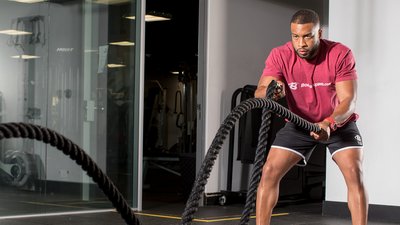
4 Unusual Gym Tools To Build Serious Grip Strength
Some of the best tools for developing hand, finger, and forearm strength have been around for centuries. Here are four old-school tools you need to try!
![]() Downloadable PDF Transcript
Downloadable PDF Transcript
Subscribe To Podcast | More Episodes
Gym2k.com Articles
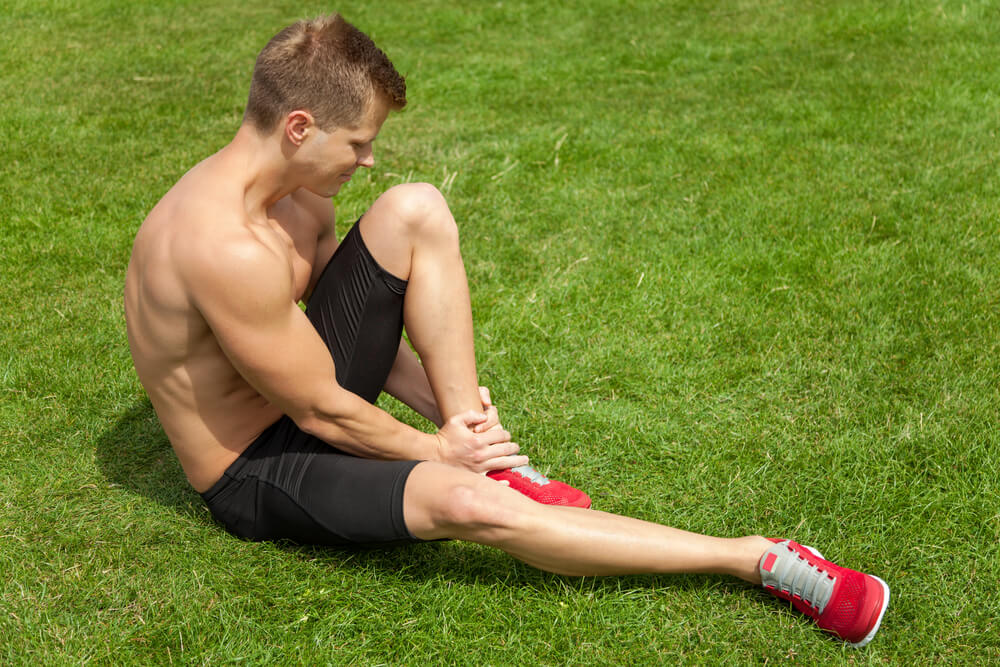

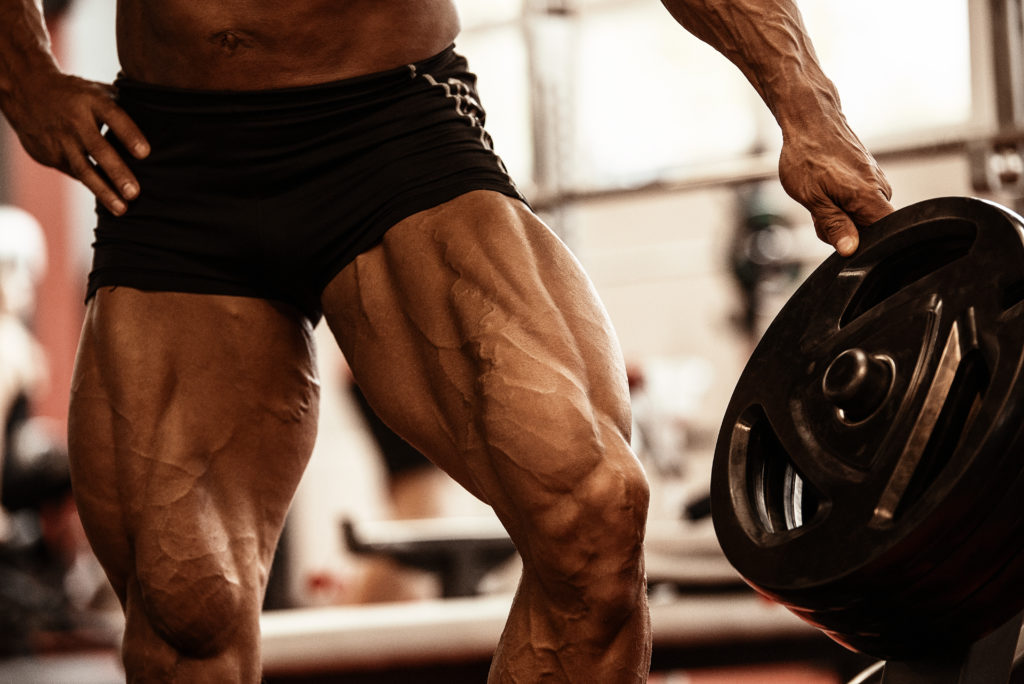
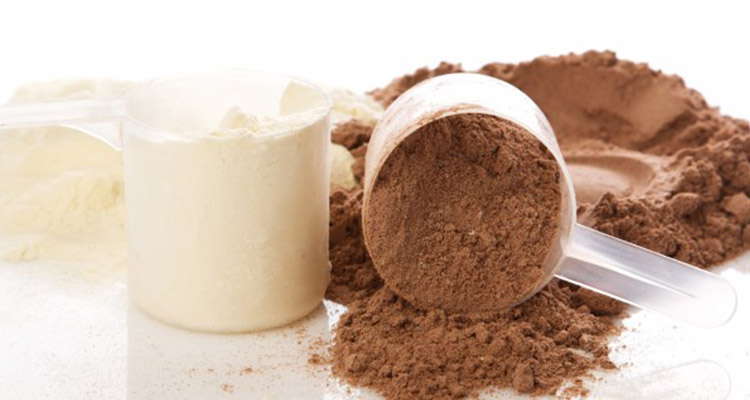


Leave a Reply
You must be logged in to post a comment.